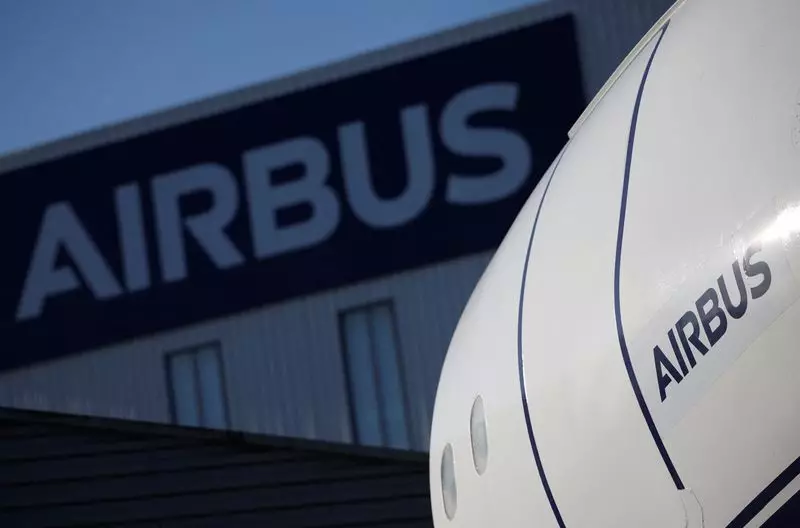Europe’s Airbus has recently disclosed a significant drop in second-quarter profits due to the expenses related to investing in higher jetliner production. This, combined with previously announced charges in its Space Systems business, has resulted in a more than 50% decrease in adjusted operating profit to 814 million euros ($879.7 million) for the quarter. Despite higher revenue of 15.995 billion euros, the company still recorded a charge of 989 million euros for forward losses in its space business, surpassing the previously estimated 900 million euros highlighted in a profit warning last month.
Although the reported profits were above analysts’ estimates, with projections averaging second-quarter adjusted operating income of 699 million euros on revenue of 15.822 billion euros, the charges have contributed to a relatively challenging financial quarter for Airbus. With nearly 1.6 billion euros written off the balance sheet within a span of five months to address potential losses in its Space Systems business, Airbus is undergoing a period of financial scrutiny and strategic reevaluation.
To address the challenges within its Space Systems business, Airbus is working on a review of its space activities and contemplating potential alliances with France’s Thales and Italy’s Leonardo. Plans for a restructuring and cost-containment initiative within the Defence and Space division have been accelerated, with an expanded cost-reduction plan being implemented across the commercial division as well. While specific targets for cost reductions have not been disclosed, industry sources indicate that immediate measures include trimming 2% from budgeted spending plans for 2024 in the Defence & Space division.
Industry Outlook and Partnerships
Amidst these strategic shifts, Airbus is also in discussions with existing partners, such as Thales and Leonardo, to explore potential alliances in the space sector. The overarching goal is to strengthen Europe’s position in the global aerospace industry, particularly in the face of competition from the United States and China. Despite setbacks such as delivery shortfalls of LEAP engines made by CFM, Airbus remains committed to its goals for 2024, including a target of 770 airplane deliveries.
Supply Chain Challenges
The company recently experienced challenges with the supply of LEAP engines, as well as competing Pratt & Whitney engines, highlighting the complexities of managing a global supply chain. GE Aerospace, a key partner in the production of LEAP engines, cited constraints related to materials supply as a significant factor impacting engine output. As Airbus navigates these supply chain hurdles, industry analysts are closely monitoring the situation and its potential impact on future earnings forecasts.
Airbus’s financial performance in the second quarter reflects a delicate balance between investment costs, strategic realignments, and supply chain challenges. As the company navigates these complexities, the focus remains on addressing immediate financial concerns, exploring strategic partnerships, and enhancing operational efficiency to sustain long-term growth and competitiveness in the aerospace industry.

